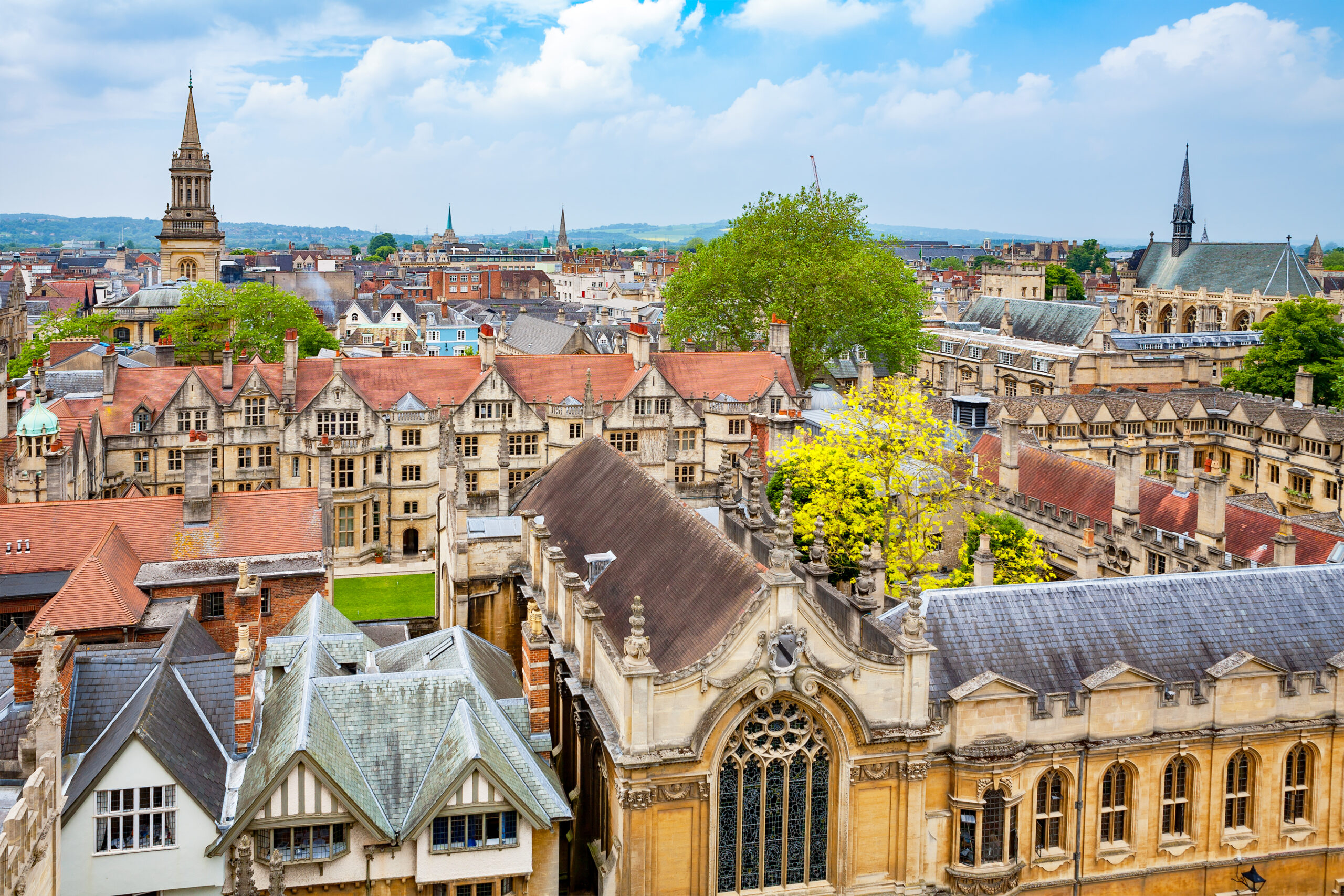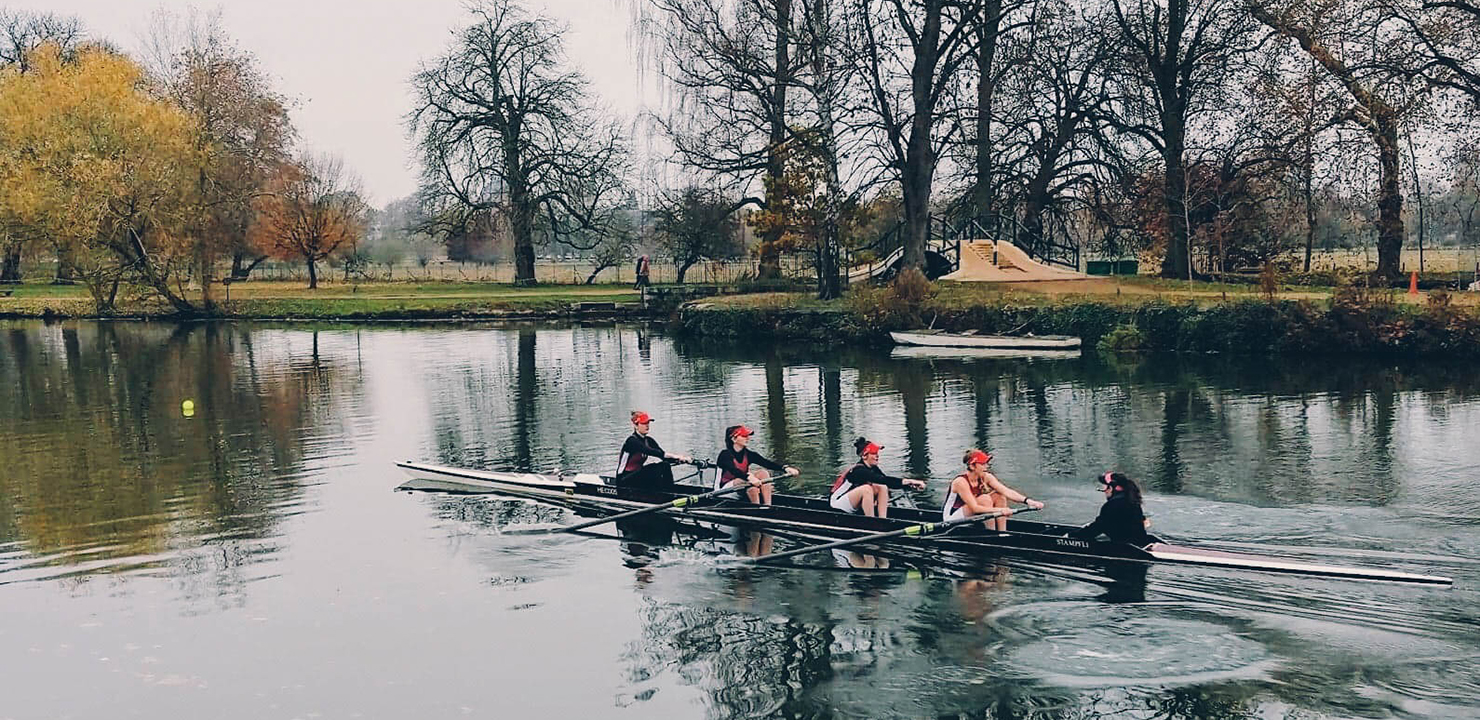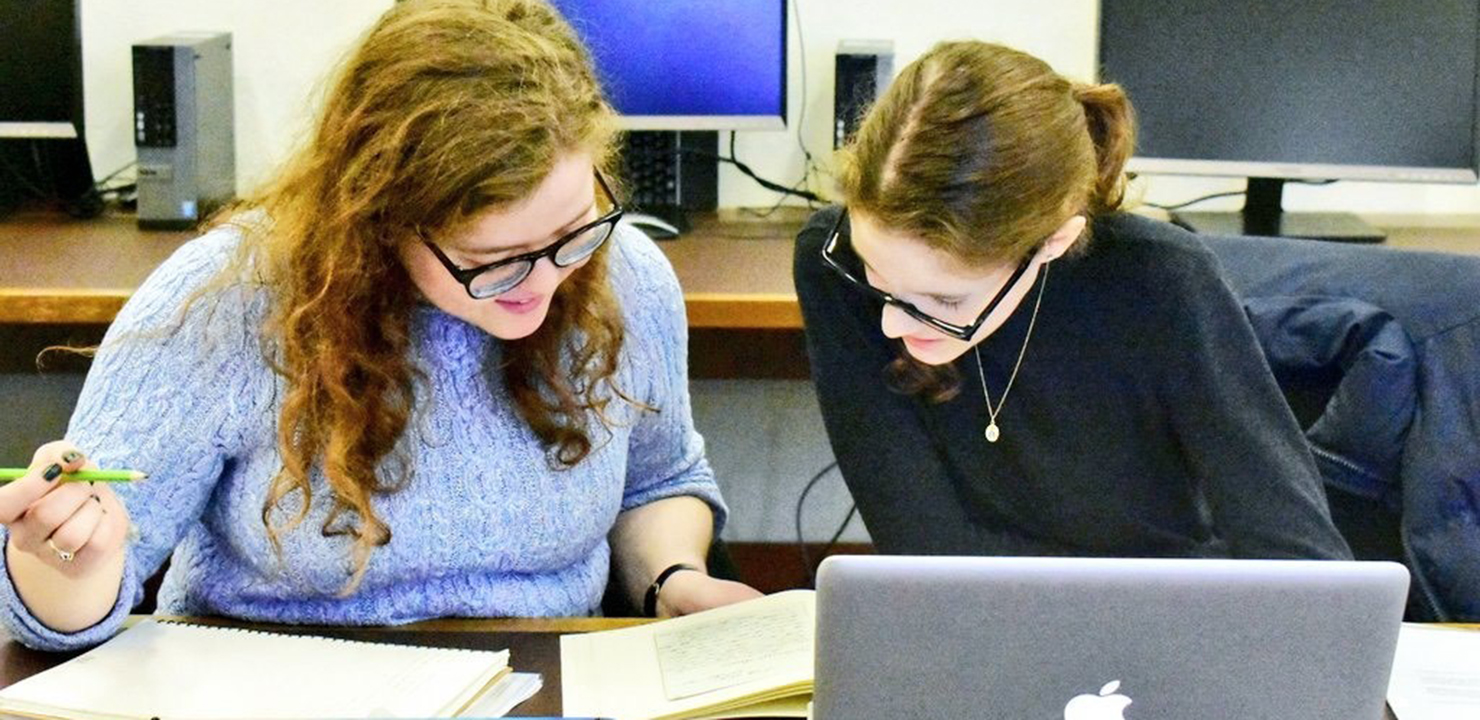Oxford, England
University of Oxford, St Hilda’s College Partnership
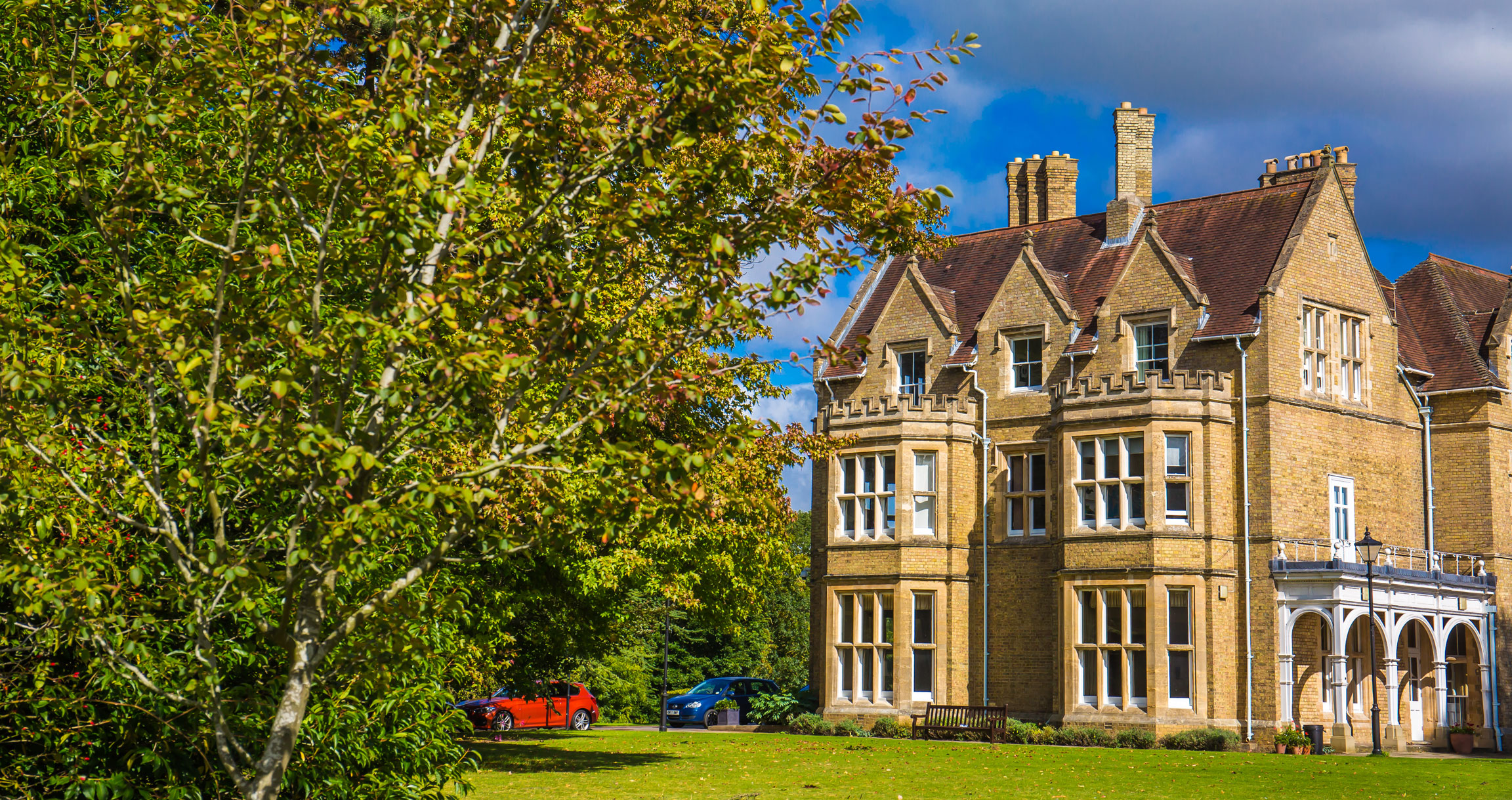

Program Overview
CHALLENGE YOURSELF IN A WELCOMING, INCLUSIVE ENVIRONMENT
Founded in 1893 as a women’s college and co-ed since 2008, St Hilda’s is known for its friendly atmosphere and beautiful riverside grounds.
Academics range from computer science to politics, philosophy, and economics—a particular strength. The college encourages students to choose two subject areas for study in Oxford’s legendary small group tutorials, led by subject experts.
College traditions include formal hall dinners on Wednesdays, an annual formal ball, and an annual Feminist Festival.
Students enjoy great access to college and university fitness and sport centers and can even explore the River Cherwell on college-owned punts (Oxford’s famous gondola-like boats). The college is on the east side of Oxford, between the city center and Cowley Road—a lively, ethnically diverse area with a variety of food and music.
Your Oxford University experience includes IFSA excursions and activities that deepen your understanding of UK culture, with no extra fees. Possibilities include a West End theater performance, a chance to try your hand in the Big London Bake experience, and exploring below ground with a former coal miner in Wales.
Details at a Glance
Application deadline
Minimum GPA
3.70
Credit load
36
Housing
Residence Hall/Dormitory, Single Rooms
Instruction language
English
Language prerequisites
None
Visa required?
Yes Learn More.
Academics
Due to the individualized nature of the Oxford tutorial system, St Hilda’s does not have a set online class catalog, but you can view tutorial subjects on the St Hilda’s College website.
St Hilda’s has recently offered the following tutorial subjects:
- Ancient and Modern History
- Anthropology
- Archaeology
- Asian and Middle Eastern Studies
- Biochemistry
- Biology
- Chemistry
- Classical Archaeology and Ancient History
- Classics
- Computer Science
- Earth Sciences
- Economics and Management
- Engineering
- English and Language Literature
- Experimental Psychology
- Fine Art
- Geography
- History
- History of Art
- Human Sciences
- Law
- Linguistics
- Material Science
- Mathematics
- Modern Languages
- Music
- Philosophy
- Physics
- Politics
- Statistics
- Theology
Students usually take one primary (major) and one secondary (minor) tutorial every term. Students are not permitted to receive extra credit by taking two primary tutorials in one term. Students will be awarded 8 U.S. semester credit hours for each primary tutorial and 4 U.S. semester credit hours for each secondary tutorial. No credit will be awarded for additional work undertaken even if the University of Oxford approves it.
Students will earn 36 U.S. semester credit hours for the Academic Year (Michaelmas Term, Hilary Term, and Trinity Term).
Science and math students may be required to attend university lectures or to take one or more short tutorials. Regardless of the number of tutorials or lectures required, science students will earn the same number of credits as other students.
Tutorial System
The hallmark of the University of Oxford academics is the tutorial system. The tutorial is typically a one-hour meeting between one or two students and the tutor. Tutorials usually meet once a week or every other week, and at the center of the tutorial is an essay on a topic the tutor previously assigned. The tutor will lead a discussion about the essay topic in an effort to provide new insights. At the end of the tutorial, the tutor will assign a new topic and may offer recommended reading. Tutorials are individually arranged, taking into account the subject to be studied and the tutor’s area of expertise. They are similar to independent study classes, but Oxford students bear even more responsibility for conducting independent research and maintaining good academic progress. The University of Oxford organizes weekly lectures on myriad academic subjects, and all students at the University, regardless of college, are welcome to attend. Lectures are not usually mandatory except for some science subjects, but tutors often recommend them as good supplements to tutorials and research.
Lab & Field Trip Fees
Please review syllabi and course materials when registering for direct-enroll classes. Certain classes may have a one-off lab or field trip fee disclosed in the syllabus or during the first meeting of the class. These fees are not included in your IFSA program fee. You will be responsible for these fees, whether they are billed and paid by IFSA or billed to you.
St. Hilda’s encourages interdisciplinary study. You may request tutorials in up to two related subjects.
Business tutorials are limited, please speak with your enrollment counselor if pursuing this option.
Medicine tutorials are not available.
APPLICATION REQUIREMENTS
Application Deadline
The application deadline is December 15 of the preceding year for all University of Oxford programs.
Eligibility
- You must be at least 18 years of age. Students under 18 may be accepted on a case-by-case basis.
- You must be currently attending or recently graduated from a U.S. or Canadian community college, technical college, two-year college, four-year college, or four-year university.
- Admission to Oxford colleges is highly competitive. Students typically study abroad at Oxford during their junior year, having completed two (2) full-time years of study at their home institution before the start of the Oxford term. Oxford colleges may consider an applicant with just one (1) full-time year of completed study, but those students will be competing with students who have completed greater study in their specific subject area. A student with less than two years of completed study may be limited to first- and second-year classes.
- Eligibility requirements can vary among host institutions. Please ask your IFSA Enrollment Counselor for specific information.
Application Acceptance
Because even exceptionally qualified candidates may not gain admission, we recommend that you open a backup application to a non-Oxford IFSA program.
Recommendation Letter
Your application to this program will require two (2) academic letters of recommendation on home institution letterhead.
TRANSCRIPT
Upon completion of your program, IFSA will send an official Butler University transcript to your home university with your coursework converted to the U.S. semester credit hour system. You will also have access to an unofficial transcript in your IFSA Student Portal. The transcript reflects classes taken, credits attempted, and grades earned during your term abroad. This service is included in your study abroad program at no additional cost. See our Transcripts page for more information.
Excursions
Activities and excursions are designed to pull you into the communities you visit and encourage cultural connections of every kind. There’s no extra fee to participate in these optional outings—everything is included in your program fee.
Below are a selection of activities and excursions from previous terms; options may vary for your program. Due to the seasonal nature of many of program activities, we cannot guarantee a specific activity or excursion will be available in a given term or program.
Activities
- The Uncomfortable Oxford Walking Tour: This tour is dedicated to raising awareness about the “uncomfortable” aspects of history. Tours focus on a specific theme and ask questions aimed at provoking new ways of seeing Oxford’s city landscape and history. Students will engage with the politics of memory in the city while uncovering histories of empire, class divides, and gender discrimination, highlighting how these legacies have left an enduring impact on our modern lives.
- The Pitt Rivers Museum Tour: Go behind the scenes at one of Oxford’s most popular attractions, famous for its period atmosphere and outstanding collections from many cultures around the world, past and present. Receive a private tour of the museum founded in 1884 by Lieutenant General Augustus Pitt Rivers, who donated approximately 22,000 items to be displayed. The collection has now grown to 500,000 items, many of which have been donated by travelers, scholars, and missionaries from across the world.
- West End Theatre Performance: No time in the UK would be complete without a trip to the West End, London’s famous theatre district. Shows are chosen that provide context or different perspectives on London/the UK/Europe. Recent examples include Operation Mincemeat and Cabaret.
- Cotswolds Villages and Blenheim Palace Day Trip: The Cotswolds are designated as an Area of Outstanding Natural Beauty. The famous picturesque villages of mellow honey-colored stone, gentle hills, peaceful pastures, and winding rivers offer a contrasting backdrop to engage with stories about the bloody battles and violent skirmishes that took place during the English Civil War. Next up is a visit to the UNESCO World Heritage site Blenheim Palace, home to the 12th Duke of Marlborough and birthplace of Sir Winston Churchill.
- Big Welsh Weekend: Delve into the rich history of Wales and explore its unique culture and its complex relationship with the rest of the UK on a weekend that takes in the famous Tintern Abbey, the historic Raglan Castle, the Blaenavon coal mines, and St Fagan’s, a museum that has preserved buildings and cultural practices from Welsh history. Spend the night in Cardiff, the Welsh capital, and discover the Cardiff Bay area, home of the Welsh Parliament.
- Yorkshire Adventure: Explore the vibrant and historic county of Yorkshire on a weekend trip where you’ll discover how this English region has contributed to the UK’s cultural landscape. Highlights may include the Bronte Parsonage in Haworth, the Piece Hall in Halifax, the Victorian model village of Saltaire, or the imposing Harewood House in Leeds.
- Waddesdon Manor Visit: Step inside the country home of the Rothschilds, one of the wealthiest families in the world. The house, built in the style of a French chateau, was created to display the remarkable art collection of Baron Ferdinand de Rothschild. Discover the family’s rich and complex history while taking in some of finest pieces of world art, before exploring the extensive landscaped gardens.
Housing and Meals
Housing
Residence Hall/Dormitory, Single RoomsMeals
Self-cateringDetails
Students live in residences halls in college annexes, such as on Norham Gardens, located just beside Lady Margaret Hall, or on St. Margaret’s Road in leafy Jericho, beside St. Hugh’s College.
- Living space. Rooms house one student, with a single bed, desk, chair, and storage. Most rooms include a private bathroom. Shared kitchen facilities.
- Meals: While there is no meal plan, eating in the dining hall is a big part of the Oxford experience. (Circular tables at St. Hilda’s encourage conversation!) Take advantage of meals in St. Hilda’s dining hall three times a day, Monday through Friday, with brunch on Saturdays and dinner on Sundays during term.
- Nearby: River Cherwell. Cowley Road. University sports center (.5 miles). Oxford city center (.7 miles). Bodleian Library (.6 miles).
Dates and Fees
Get Started
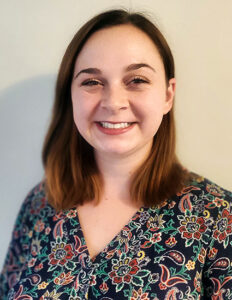
Kristen Clark
Enrollment Counselor
